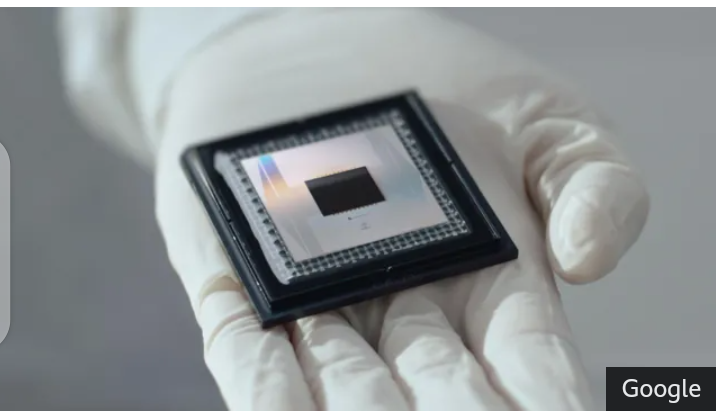Google Unveils Revolutionary Quantum Chip “Willow”.
Google has unveiled its latest quantum computing chip, named “Willow,” which the tech giant claims can solve problems in five minutes that would take the world’s fastest supercomputers an astonishing 10 septillion years to complete.
Quantum computing represents a groundbreaking approach to technology, leveraging the principles of particle physics to revolutionise computational power. Google asserts that Willow incorporates significant “breakthroughs” and marks a pivotal step toward creating large-scale quantum computers capable of tackling real-world challenges.
However, experts caution that while Willow is a major milestone, it remains a primarily experimental device. A fully functional quantum computer capable of addressing a broad range of practical problems is still years – and substantial investments – away.
The Potential of Quantum Computing
Quantum computers operate differently from traditional computers, using the peculiar properties of quantum mechanics, such as superposition and entanglement, to process information. These capabilities could dramatically accelerate solutions to complex problems, such as drug development, designing nuclear fusion reactors, and creating advanced car batteries.
Despite its promise, the technology has sparked concerns. Quantum computing’s ability to break current encryption methods poses potential risks to data security. In response, companies like Apple are already developing “quantum-proof” encryption to safeguard sensitive information.
Progress and Challenges Ahead
Hartmut Neven, the head of Google’s Quantum AI lab and self-proclaimed “chief optimist” of the project, stated that Willow could soon be used for select practical applications, although specific details remain under wraps. He predicted that commercially viable quantum computing would not be realised until later in the decade.
“Initially, quantum applications will focus on simulating systems where quantum effects are critical,” Neven explained. This could revolutionise industries ranging from pharmaceuticals to energy and automotive technology.
While quantum computing is still in its early stages, Willow’s development underscores the rapid progress being made in this cutting-edge field. If realised, the potential for quantum computers to transform society could be immense, promising a future of unprecedented technological capabilities.



